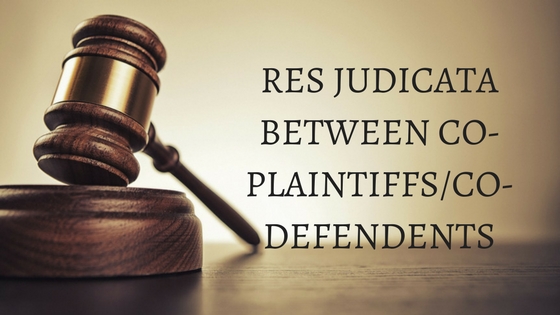Aapka Consultant Judgment Series- In this series, we are providing case analysis of Landmark Judgments of Hon’ble Supreme Court of India.
Iftikhar Ahmed and Ors v. Syed Meharban Ali and Ors
AIR 1974 SC 749, [1974] 2 SCC 151
JUDGES: Kuttyil Kurien Mathew and A. Alagiriswami
Date of Decision: 26-02-1974
FACTS:-
It was an appeal, by special leave, against the order of Allahabad High Court setting aside the decree passed by the District Judge, in appeal, setting aside an award passed by the arbitrator appointed under the Consolidation proceeding. Here, dispute between the appellants and the respondents, as to bhumidar of the property, was referred to an arbitrator by the Civil Judge under Consolidation proceeding. The arbitrator, relying upon an earlier judgment of the High Court instituted by the appellant’s predecessor and the present respondents, as operative res- judicata, held that the respondents had no title as bhumidar and appellant’s predecessor alone was entitled to the properties. Aggrieved by the award passed, respondents filed objections before learned IInd Civil Judge, who set aside the award passed earlier and held judgement as res judicata inoperative. Thus, High Court of Allahabad reversing the order of District Judge favouring appellants confirmed the award.
ISSUE:-
Whether or not suit is barred by the principles of Res Judicata?
JUDGMENT:-
On behalf of the appellants, it was argued that award proceeded on the basis that the judgment of the High Court did not operate as res judicata in respect of the title of the parties to the properties, and therefore, the decision of the District Judge setting aside the award was correct. The Hon’ble Court noted that to operate judgement as res judicata between co-defendants, it is necessary to establish (1) conflict of interest between the co-defendants, (2) to decide the conflict in order to give relief to the plaintiff, and (3) the court actually decided the question. The Court relied upon the case Board in Sheoparsan Singh v. Ramanandan Prasad Narayan Singh [A.I.R. 1916 P.C. 78], wherein it was held that the rule of res judicata “while founded on ancient precedent is dictated by a wisdom which is for all time” and that the application of the rule by the courts “should be influenced by no technical considerations of form, but by matter of substance within the limits, allowed by law. The Supreme Court while considering question of Res Judicata in Chandu Lal v. Khalilur Rahman [A.I.R. (1950) P.C. 17] originate no reason why a previous decision should not operate as res judicata between co-plaintiffs if all the above mention conditions are mutatis mutandis satisfied. On the facts and circumstances of the case, appeal allowed, restoring the award passed by the first arbitrator.
HELD:-
Thus held, that the earlier judgement of the High Court would operate as Res Judicata as regards the title of the parties to the properties.
To Get Legal Opinion from Advocates/ Legal Experts, Please click here
To Get Legal Opinion from Retired Hon’ble Judges, Please click here












